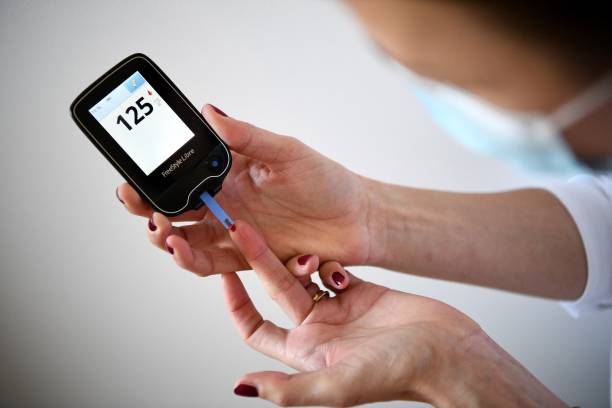Not really, sugar doesn’t directly cause diabetes rather, it will cause fleshiness, disorder and alternative health conditions. Obesity/fleshiness may be a risk factor/issue for type two diabetes. Diabetes will cause excess sugar within the blood which might cause serious health issues. Diabetes may be a malady that happens once the blood glucose/sugar is extremely high. Glucose is the main supply of energy within the body and it always come from food. Hormone is chemical secreted or made by the duct gland. It helps the glucose from the food to urge into your cells to be used for energy.
It’s vital for the glucose gotten from food to urge into the cells. If your body provide very little or no hormone, the glucose won’t get into the cells. It’ll rather keep within the blood. Having an excessive amount of sugar in your body will cause health issues like polygenic disease, cancer, obesity, inflammation, etc.
There are two main types of diabetes. They are:
1) Type one diabetes
2) Type two diabetes
TYPE ONE DIABETES: Here, the body refuses to form hormone. The system attacks and destroys the cells within the duct gland that produces hormone. It is common in kids and young adults. Those that are diagnosed with type one polygenic diabetes have to take hormone everyday in order to remain alive.
TYPE TWO DIABETES: Here, the body doesn’t turn out hormone and doesn’t use it well. It can develop at any age. It’s common in old and older individuals. This type of diabetes is that the commonest type of polygenic diabetes.
Other kinds of diabetes are:
1) Monogenic diabetes (inherited diabetes)
2) Gestational diabetes (develops throughout gestation in some girls and frequently disappears once the birth of the baby)
3) Cystic fibrosis-related polygenic disease (found in individuals with cystic fibrosis).
SYMPTOMS OF DIABETES
1) Weight loss
2) Fatigue
3) Increased Hunger immediately after feeding
4) Frequent infections like skin infections, yeast infections, gum sores.
5) Excessive thirst(dehydration)
6) Nausea
7) Vomiting
8) Dry mouth
9) Itching skin
10) Frequent excretion
11) Slow-healing wounds
12) Numbness/tingling of the hands and feet
13) Blurred vision/eyesight
14) Impotence or male erectile dysfunction
15) Laboured respiratory
RISK FACTORS OF DIABETES
1) Family history of polygenic disease
2) Environmental factors
3) Presence of damaging reaction system cells
RISK FACTORS OF DIABETES
1) Being overweight
2) Little or no physical activity
3) Family history of polygenic disease
4) Age
5) Ethnicity
6) High pressure level
7) Impaired aldohexose tolerance
8) Polycystic ovary syndrome
9) Experiencing physiological state polygenic disease throughout gestation
10) Low levels of sterol and high levels of triglycerides.
DIABETES WILL CAUSE:
1) Cardiovascular malady
2) Kidney injury
3) Eye complication
4) Foot injury
5) Skin issues
6) Hearing issues
7) Alzheimer’s malady
8) Death
HOW TO PREVENT DIABETES
1) Watch your weight as low weight will lower the chance of polygenic disease
2) Regular physical activity
3) Monitor your glucose level
4) Eat healthy foods. Eat foods that square measure lower in calories and fat and better in fibre. Eat additional of fruits, vegetables and whole grains.
DIABETES DIAGNOSIS
Diabetes is diagnosed through the subsequent tests in hospitals and medical laboratories.
1) Oral glucose tolerance check
2) Fasting blood glucose check
3) Random plasma glucose check
DIABETES TREATMENT
Diabetes may be a serious malady that you just can’t treat on your own. Your doctor can assist you to make a diabetes treatment plan that’s right for you in ways in which you’ll perceive. You’ll additionally get to see alternative health professionals like ophthalmologist, dietitian, specialist and medical specialist. Diabetes treatment needs you to observation your glucose levels with a mix of medicines, physical activity (exercise) and diet.

Aanuoluwapo is a nursing student of Bowen university. She desires to be a caregiver for people and helps to manage physical needs, prevent illness, and treat health conditions.










